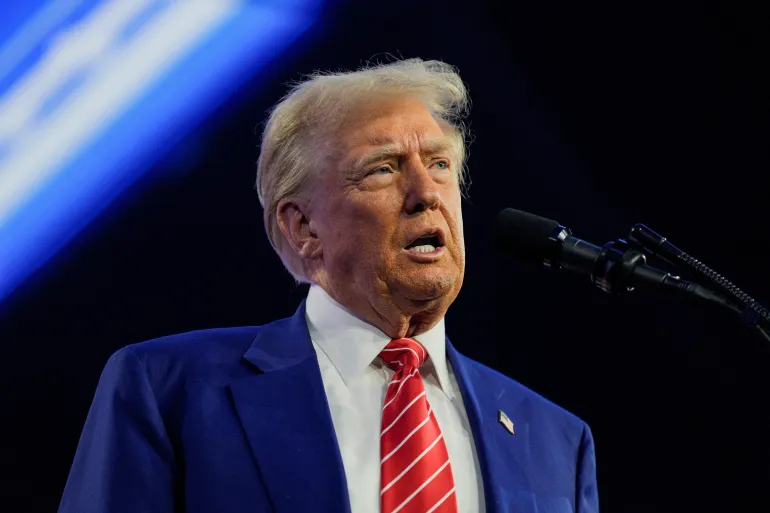But the court left ambiguous what precisely an “official” act could be. That issue has cropped up in the defence team’s motions to dismiss the New York hush-money case.
Judge Merchan explicitly addressed that ambiguity in Friday’s decision.
“The primary issue before this Court is: whether a President-elect must be afforded the same immunity protections from a state prosecution as a sitting President? This issue, as far as this Court can discern, is without precedent,” Merchan wrote.
But ultimately, Merchan decided that presidential immunity did not extend to actions taken outside of office.
“This Court finds that Presidential immunity from criminal process for a sitting president does not extend to a President-elect,” he wrote. “The Constitution dictates that only a President, after taking the oath of office, has the authority of the Chief Executive, a President-elect does not.”
Merchan also said he weighed the defence argument that a president must be free to “safeguard the interests of the Nation, unencumbered by pending criminal proceedings”.
He said he balanced that argument against other “competing factors” including the idea that “no one is above the law” and “the importance of protecting the sanctity of a jury verdict”.
“This Court is simply not persuaded that the first factor outweighs the others at this stage of the proceeding,” Merchan wrote as he justified the sentencing hearing.
Anything that could be considered an “official” act of the president fell under “presumptive immunity”, the Supreme Court declared.
But the court left ambiguous what precisely an “official” act could be. That issue has cropped up in the defence team’s motions to dismiss the New York hush-money case.
Judge Merchan explicitly addressed that ambiguity in Friday’s decision.
“The primary issue before this Court is: whether a President-elect must be afforded the same immunity protections from a state prosecution as a sitting President? This issue, as far as this Court can discern, is without precedent,” Merchan wrote.
But ultimately, Merchan decided that presidential immunity did not extend to actions taken outside of office.
“This Court finds that Presidential immunity from criminal process for a sitting president does not extend to a President-elect,” he wrote. “The Constitution dictates that only a President, after taking the oath of office, has the authority of the Chief Executive, a President-elect does not.”
Merchan also said he weighed the defence argument that a president must be free to “safeguard the interests of the Nation, unencumbered by pending criminal proceedings”.
He said he balanced that argument against other “competing factors” including the idea that “no one is above the law” and “the importance of protecting the sanctity of a jury verdict”.
“This Court is simply not persuaded that the first factor outweighs the others at this stage of the proceeding,” Merchan wrote as he justified the sentencing hearing.
A conviction on falsifying business records could have carried a sentence of up to four years in prison, though it was unlikely Trump would have faced a custodial sentence.





